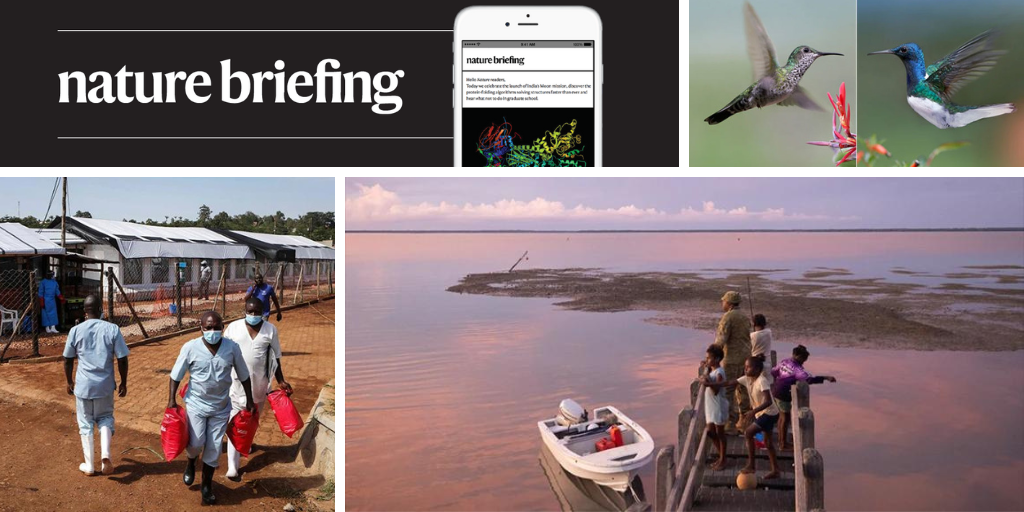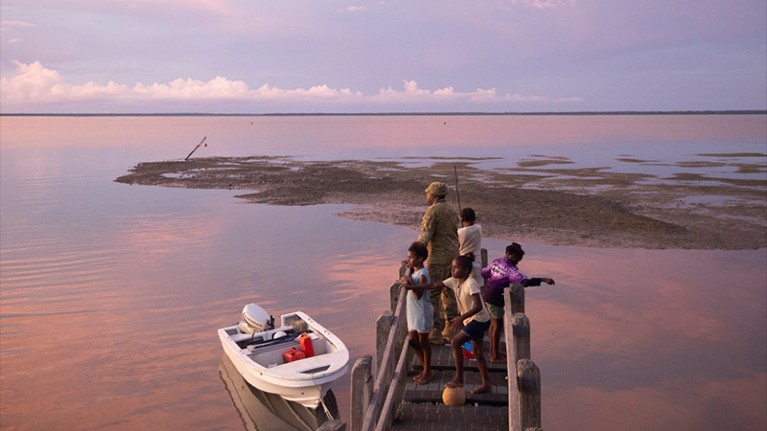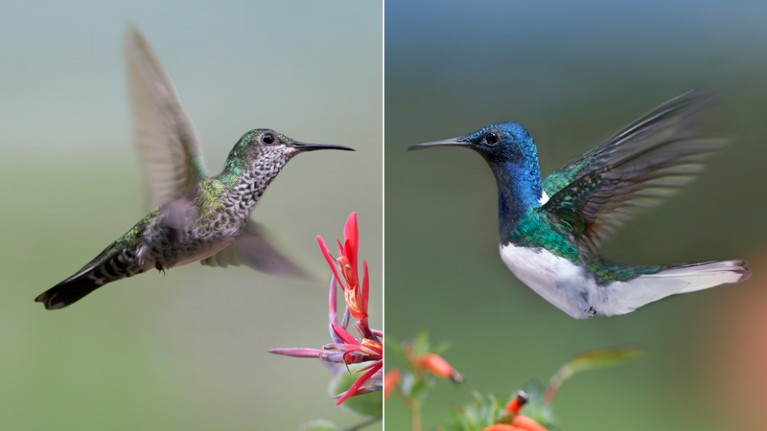Hello Nature readers, would you like to get this Briefing in your inbox free every day? Sign up here
The Torres Strait islands are already experiencing rising sea levels and coastal erosion.Credit: Brook Mitchell/Getty
The United Nations Human Rights Committee ruled last week that Australia failed to protect people living on four islands in the Torres Strait from the effects of climate change, and has ordered it to pay for the harm caused. It is the first successful claim of its kind. People on the Torres Strait islands, off the northern tip of Australia, are losing land, traditional food sources and culturally significant sites to rising sea levels. The ruling has implications for other communities seeking redress for climate-change harms. Australia “was a sitting duck for this kind of case, because it is such a high emitter of greenhouse gases. And it has been so recalcitrant to act,” says legal scholar Bridget Lewis.
The government of Indonesia has banned five scientists from doing research in the country after they published an opinion piece questioning the government’s claim that orangutan populations were growing. The move will have little effect on the specific researchers because they are all based abroad. But it highlights a broader trend: the government is tightening control over research into the country’s biodiversity by both local and foreign scientists. “The real issue is the independence of Indonesian science in general and conservation science more specifically,” says conservation scientist Erik Meijaard, who is one of the people named in the ban.
In the past month, at least 64 people in Uganda have been — or are suspected of being — infected with a rare species of Ebola virus, for which no vaccines or treatments are available. About 30 people have died. The rapid rise and spread of the lethal virus across five districts in Uganda have alarmed scientists, and raised fears that the outbreak will not be easy to contain. But Ebola is not new to Uganda, and health officials are putting lessons from previous outbreaks into practice — for example, a mobile laboratory in Mubende, the outbreak’s epicentre, is speeding up testing and detection.
As well as the toll on human life, Russia’s invasion of Ukraine is affecting rare animal and plant species in the north of the country. Polissia, a region that extends into Belarus, Poland and Russia, harbours species such as moose, wolf and lynx that have disappeared from most of the rest of Europe. Shells fired into northern Ukraine have sparked fires that have burnt more than 2,000 hectares of forest, destroying rare plants and scattering wildlife. Landmines planted by Russians in Ukraine’s part of Polissia have also made it dangerous for rangers to patrol.
Features & opinion
People concerned about troubling increases in mental-health problems among adolescents often point the finger at social media. But the evidence doesn’t seem to back up that link, argue the co-directors of the UCLA Center for the Developing Adolescent at the University of California, Los Angeles. Instead, adults should focus on the conditions and experiences that are known to help adolescents thrive:
• Safe ways to try new things
• Opportunities to contribute to other people’s lives
• Healthy relationships with parents and other caring adults
• Getting enough sleep to enable discovery and learning
Philosopher and sociologist Bruno Latour, a pioneer of science and technology studies, has died aged 75. In his influential 1979 book Laboratory Life, he and sociologist Steve Woolga shadowed staff at the Salk Institute for Biomedical Studies in La Jolla, California, like anthropologists. Last year, his book on COVID-19, After Lockdown, argued that a new “global awareness” triggered by lockdowns might help to unite us in facing the even more demanding threat of climate change.
Image of the week
Figure 1 | The hummingbird Florisuga mellivora. Females of this species exist in two forms of differing colours. Around 20% of females have the same colouring as the males (blue and white plumage). Falk et al. offer an evolutionary explanation for why some females mimic male colouring.Credit: Tim Fitzharris/Nature Picture Library
Some female white-necked jacobins (Florisuga mellivora) nab good feeding spots by adopting the flashy plumage of their bigger, brasher male counterparts. Around 20% of females have the same blue and white plumage as the males. Researchers found that, no matter their colour, females were, on average, smaller, less aggressive and not as strong as males. The team concludes that for male-patterned females, just looking like a male is enough to intimidate competitors.
Nature News & Views | 7 min read — or, if you’re in a rush, try the Nature Research Highlight | 1 min read (both Nature paywall)
Reference: Proceedings of the Royal Society B paper







More News
Who will make AlphaFold3 open source? Scientists race to crack AI model
These crows have counting skills previously only seen in people
Seed-stashing chickadees overturn ideas about location memory